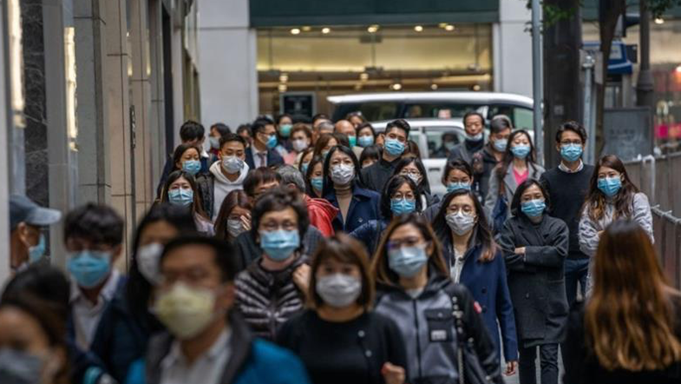Growth forecasts for India’s economy, which before the Covid-19 global pandemic was projected to post a mild recovery, are getting bleaker as the government weighs whether to extend the 21-day nationwide lockdown.
Now, UK research consultancy Capital Economics projects India’s growth will slow to just 1 per cent in this fiscal year, the lowest pace in 41 years. “Coronavirus and measures to contain it will ravage the economy over the coming months,” said Capital Economics economist Shilan Shah. Fitch ratings agency, meanwhile, has slashed its 1920-21 growth projection to 2 per cent, a 30-year low.
On the domestic front, household spending and investment “is likely to collapse, with only a ramping up of government spending providing any support” while external demand will “weaken drastically too,” Shah said. The central bank’s responded with aggressive monetary loosening, but large-scale fiscal stimulus is also needed to prevent the drastic slowdown from “morphing into a contraction in annual output,” Shah said.
Capital Economics expects the lockdown, slated to end April 14, to be extended for up to three months and if so, “large parts of the manufacturing, construction, transport, retail, leisure and recreation sectors will grind to a halt.” US consultancy Boston Consulting Group also forecasts a protracted shutdown which it says India will only start lifting between end-June and second week of September.
The lockdown’s aimed at averting a catastrophic explosion of coronavirus cases — an Indian Council of Medical Research study suggests one unquarantined Covid-19 patient can infect 406 people in 30 days. But the shutdown’s also caused unprecedented disruption to India’s consumption-driven economy which even before the coronavirus shock was growing at six-year lows. Growth projections for 2019-20 range from around 4.5 per cent to 5.0 per cent. Gross Domestic Product growth for the 2019-20 third quarter, set for publication Friday, will be around 4.5 per cent, slightly ahead of the 4.3 per cent logged in the year-ago period, helped by a healthy crop output, economists say.
“The challenge for India versus its peers is starker if infections spread rapidly considering the higher density of population per capita and weaker health infrastructure,” UBS economist Tanvee Gupta Jain said. India looks to be a long way from the goal of “flattening the coronavirus curve” and preventing a surge that swamps the nation’s weak healthcare system. It took 59 days to reach the first 1,000 confirmed cases. But in just two days, the number of cases rose from 3,000 to 4,000 — and deaths from 75 to 100. The death toll in India stood at 111 Tuesday and coronavirus cases at 4,281, a 704 jump in 24 hours. Union Minister Prakash Javadekar said a decision on whether to extend the shutdown “will be declared at the right time.”
States favour shutdown extension
Many states are urging the government to extend the shutdown with Telangana’s chief minister K Chandrashekar Rao saying, “Economic recovery can come later. In the given situation, with India’s poor health infrastructure and big workforce, we have no other weapon.” India could face 100,000 to 1.3 million confirmed coronavirus cases by mid-May if the trend continues, according to a March 25 report by the COV-IND-19 Study Group. Already, tens of thousands of urban migrant workers have returned to their villages, potentially spreading the virus deep in India’s hinterland. (more…)

